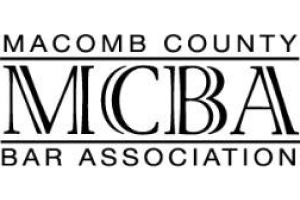Recent headlines indicate that there will be significant changes with the Department of Veterans Affairs (VA). If you are in metro Detroit or the Grand Rapids area, we can help explain these changes. Many of these changes are caused by the backlog of applications for “service connected” pension benefits and healthcare benefits. A recent article…
Continue reading ›Articles Posted in Michigan Elder Law
Recent headlines indicate that there will be significant changes with the Department of Veterans Affairs (VA). If you are in metro Detroit or the Grand Rapids area, we can help explain these changes. Many of these changes are caused by the backlog of applications for “service connected” pension benefits and healthcare benefits. A recent article…
Continue reading ›Are you a senior residing in Macomb, Oakland, Wayne, Ottawa or Kent County and receive Medicaid benefits for your spouse residing in a nursing home? If so, you need our help. Proposed changes to Medicaid regulations will expose people to the danger of losing benefits or incurring divestment penalties. Michigan Medicaid regulations provide that married…
Continue reading ›Not only can Serafini, Michalowski, Derkacz and Associates, P.C. provide seniors, veterans and their families with long-term care and benefit planning, it can also provide insight and planning for seniors and their families needing assistance with Medicaid for nursing home care. Moving into the West Michigan area in order to assist families and seniors with…
Continue reading ›I recently came across an article regarding Alzheimer’s Disease. Alzheimer’s Disease is becoming more and more prevalent as our population ages. It remains as a medical mystery to many physicians and specialists treating the disease. The complete text of this article can be found by clicking on the link to the remainder of this entry.…
Continue reading ›Estate Planning – More Than Just Avoiding ProbateBesides the obvious and often exaggerated fears of dealing with the probate court, such as lack of privacy and added cost, there are other important reasons to avoid probate that attorneys might not tell you. After the loss or incapacity of a loved one, family members are naturally…
Continue reading ›I recently wrote on the topic of “Do It Yourself” estate planning. As a follow up, please click on the link below to read a great article on this subject. Kimberly Palmer of U.S. News and World Report: Money has published an article that addresses the risks associated with the creation of legal documents without…
Continue reading ›Michigan’s Department of Human Services (DHS) is the administrative branch responsible for administering and managing the state’s Medicaid program. This branch of government is responsible for setting the Medicaid eligibility criteria each year. Recently, the DHS released its financial eligibility criteria. The new community spouse resource allowance is a minimum of $21,912.00 and a maximum…
Continue reading ›Frequently, veterans that are residents of Macomb County who need assistance will consider applying for Medicaid benefits in addiiton to VA benefits. If you or your family fall into this category, it is important to understand the interaction between the different care systems as well as the differences in application of federal and state regulations.…
Continue reading ›










